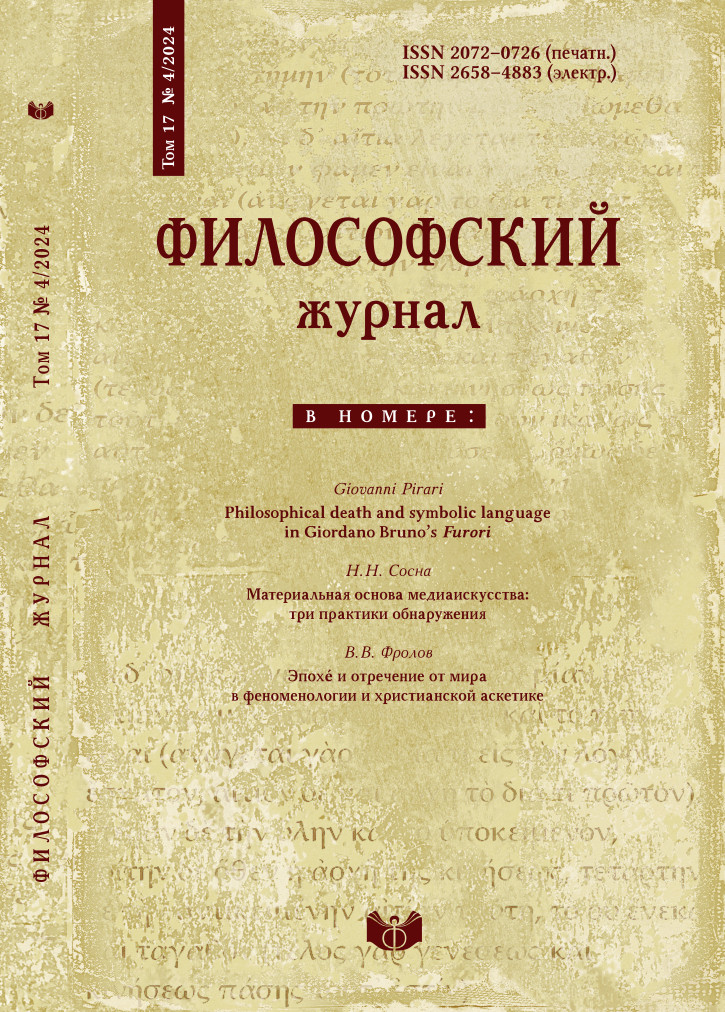Возможен ли трансцендентализм, обусловленный языком?
DOI:
https://doi.org/10.21146/2072-0726-2024-17-4-63-78Ключевые слова:
естественный язык, гипотеза лингвистической относительности, деятельностный вид трансцендентализма, инкультурация, субъект познания, SNARC-эффект, трансцендентализм лингвистического видаАннотация
В статье предпринимается попытка наметить абрис проблемы, которая находится на пересечении философии языка, лингвистики, психологии и такого раздела математики, как топология, заключающейся в обосновании необходимости учитывать взаимосвязь и взаимодействие представлений, относящихся к этим дисциплинам, при анализе роли и статуса языка в когнитивных процессах. Мы исходим из предположения о том, что поскольку язык и его атрибуты самым непосредственным образом детерминированы социокультурными факторами и доминирующей деятельностью субъекта, то это отражается на грамматических особенностях языка, стиле письма и применяемых шрифтах. В свою очередь особенности языка, стиль письма и применяемые шрифты (их топология) оказывают определенное влияние на познавательный процесс и его результаты. Поэтому высказываются идеи о том, что деятельностная разновидность трансцендентализма может быть дополнена трансцендентализмом лингвистического типа, поскольку владение языком включается в когнитивный потенциал субъекта и язык выступает активным участником процесса познания, а также детерминирует некоторые контуры результата познания. Кроме того, процедуры инкультурации, различающиеся в индивидуалистических (западных) и коллективистских (восточных) обществах, налагают отпечаток и на языки, которые там приняты, и на стили письма, и на топологии шрифтов. Показывается, что гипотеза лингвистической относительности может быть расширена благодаря существованию и функционалу SNARC-эффекта – зависимости процесса познания от манеры и стиля письменного дискурса в виде гипотезы относительности к топологии письменных шрифтов, а деятельностный трансцендентализм предполагает в случае учета роли языка в познании уточнение в виде трансцендентализма лингвистического типа.






